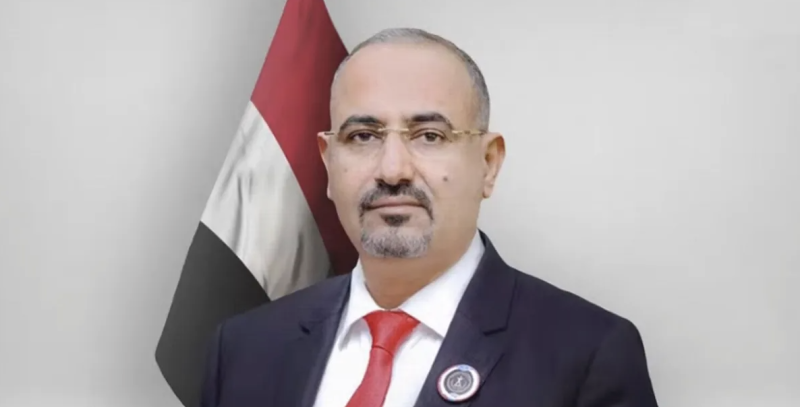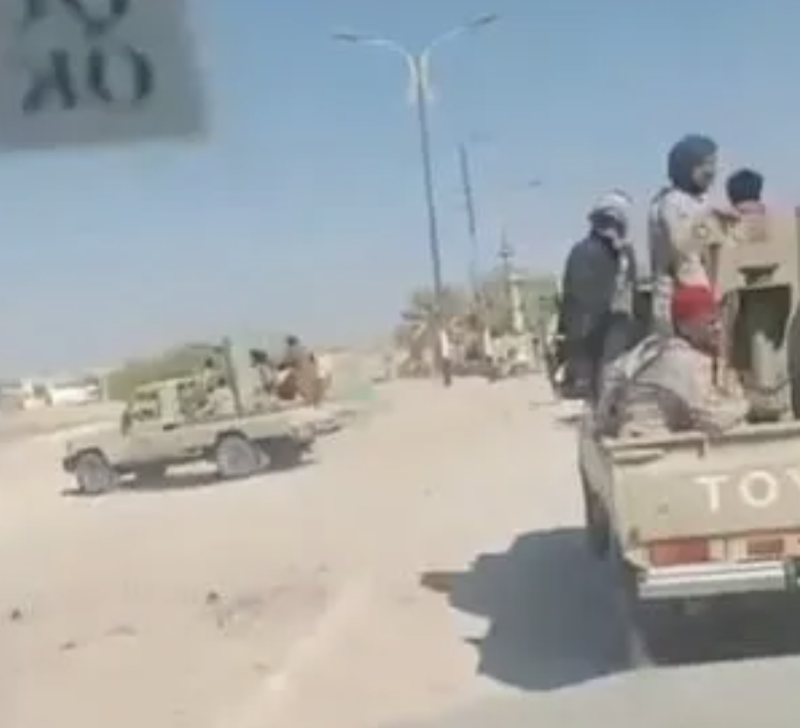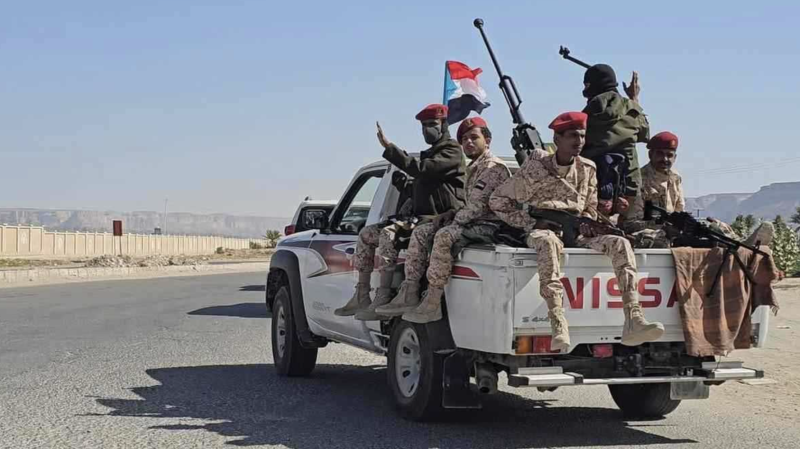Power struggle rages in Yemen


“Ruling Yemen is like dancing on snake heads,” former Yemeni President Ali Abdullah Saleh said, according to British researcher Victoria Clark. Poet Ibrahim al-Hadrani wrote, “The saddest and grouchiest people in the world are the ones who ride lions and rule Yemen.” This is an honest description of the relationship between the elites who compete to rule Yemen, but it is not an accurate characterization of the relationship between the Yemeni people and their rulers. The Yemeni people often say they are "Arta people," Arta being a plant that is eaten without chewing, making it easy to eat even for those who do not have any teeth.
According to those who use this expression, the Yemeni people are submissive and easy to control, defeat and oppress. If it were not for these characteristics, the former president would not have been able to rule the country for 34 straight years. On the other hand, there is still a raging power struggle between several parties, most notably and most seriously the conflict between the current president, Abed Rabbo Mansour Hadi, and Saleh, who heads the General People's Congress (GPC).
The current president’s cards
Hadi lacks, at least at the moment, the political support of influential local parties. The Houthis accuse him of surrendering to the Yemeni Congregation for Reform (Islah) and elements of the old regime, while Islah accuses him of facilitating the Houthis’ invasion of Sanaa on Sept. 21, 2014, as well as disrupting operations by the army and security forces to control the expansion of Houthis in a number of provinces. In addition, independent activists from youth and civil movements accuse him of weakness. They say he has surrendered too much to conservative elites, who seek to halt the implementation of comprehensive national dialogue.
However, none of these parties were in direct conflict with Hadi. But Saleh and his supporters in the GPC and in the state’s civil and military apparatus are in direct conflict with Hadi. They have accused him of being behind sanctions, travel bans and the freezing of Saleh’s economic assets, imposed by the Security Council on Nov. 8, 2014.
Yet Hadi has a number of political cards that, if used correctly, could provide an opportunity to defeat the former president. Most important of these is the international and regional support card. It would not have been possible for Hadi to implement many of his policies if it were not for the support of the international community, including the sponsors of the "Gulf initiative," who applied pressure on Saleh. Although the former president underestimated the impact of international sanctions, he was aware that their impact could snowball, eventually forcing Saleh to be asked to appear before an international court. The second card held by Hadi is tied to possible popular support. Hadi is closer to the people than Saleh. This was made clear during a demonstration held by Saleh loyalists on Nov. 7, where the small turnout highlighted the declining support for the former leader among the Yemeni people.
The former president’s cards
Saleh also holds a number of cards, most notably through his alliance with Ansar Allah (Houthi groups). He has previously used this alliance to take revenge on his rivals, including Gen. Ali Mohsen al-Ahmar, Sheikh Sadeq al-Ahmar and his brothers, and the Yemeni Congregation for Reform. However, this alliance might not be useful in the struggle with Hadi, who is not a rival of the Houthis, as was made clear in recent weeks. Houthi opposition to the government was expected to be harsher than it was, but they only asked for certain things to changed, instead of abandoning the government completely. A number of Islah-affiliated ministers were replaced, but they blessed the government in a speech given by a member of the movement’s political council and adviser to the president of the republic.
Furthermore, the unspoken tactical alliance between the former president and Ansar Allah is ongoing, though it is denied by both parties. If this alliance is made public it would harm both Saleh and Ansar Allah. Certain parties loyal to Saleh reject this alliance for political or ideological reasons, and making such an alliance public may lead to further divisions between them. On the other hand, certain parties within Ansar Allah accept this alliance as tactical, but refuse any strategic alliance. They do so firstly because Saleh is primarily responsible for the six wars of Saada that occurred between 2004 and 2010, and second because this strategic alliance to confront Hadi may lead to the return of the old regime, as opposed to the undeclared tactical alliance, which mainly benefits Ansar Allah. Moreover, if this alliance becomes strategic and public, it will reduce the popularity of Ansar Allah and undermine its relationship with the other political forces, including independents and youth movements.
Invalid cards
The GPC enjoys a large majority in the bicameral parliament, with a comfortable majority in the House of Representatives elected in 2003 and an overwhelming majority in the appointed Shura Council. Saleh’s influence was evident in the House of Representatives and the Shura Council in November 2014, when parliamentarians slammed foreign engagement in Yemen and and refused further interference. This highlights the loyalty of members of both houses to Saleh. However, it is unlikely that the former president will use this card in his war against Hadi and his government, since Saleh tends to focus on covert ways of undermining the government, instead of trying to topple it publicly, especially in light of the international pressure he is subject to and the consequent international sanctions that may be imposed on him for hindering the political transition.
The former president still holds his partisan position as the president of the GPC, and most of the GPC leaders remain loyal to him. Saleh has exploited his position within the party to aid his struggle against Hadi, who was the vice president and secretary-general of the GPC. An extraordinary meeting of the GPC standing committee passed a resolution to strip Hadi of his two posts within the party. However, some of the GPC leaders, especially in the south, rejected this resolution, which also slammed Hadi as illegitimate.
Hadi sent a letter to the banks requesting that they not pay out any money to the GPC without his approval and signature. In accordance with the parties' bylaws, the selection of the vice president and secretary-general of the GPC generally falls within the scope of the GPC, not the standing committee, indicating a split within the party. If this conflict evolves, the split may turn into a division, especially since GPC structure is fragile and may disintegrate. Since its establishment in 1982, the party has been a regime party and most of its leaders are seeking profit. Their positions during major political upheavals are based on personal gain, not ideological calculations. It is likely that Hadi, who has the power to appoint senior political positions and manage public money, has gained the loyalty of many of them. There are significant indications of this. For example, when Saleh requested that members of the government affiliated with the GPC step down, only one minister out of 11 did so.
Uncertain future
If the two sides continue to engage in political disputes, whether legitimate or not, the negative consequences will be immediate but limited. These disputes will disrupt the daily work of the government as well as civil, military and security state institutions, and impede the completion of development projects. If the former president or another party from the old regime tries to oust Hadi from power through a broad military operation or assassination, this will result in long-term negative effects, starting with entrusting the office of president of the republic to the speaker of parliament, in accordance with the constitution.
Then, the speaker would call for presidential elections within 60 days, which means that the old regime would regain power and all the outcomes of the National Dialogue Conference would be undermined, just like the document of covenant and agreement was renounced after the war of the summer of 1994. All this would disrupt the work of the committee in charge of drafting the new constitution and disrupt the referendum on this constitution. This, in turn, would prevent the transition to a federal state, which would result in an alliance between the moderate southern factions and the movement for secession, after the failure of the project designed to offer justice to the southerners. This would transform the single-member electoral system to a proportional electoral system, and strip women of the gains they made during the National Dialogue Conference. Even more dangerous is that the old regime, if it regains power, will continue to apply a survival strategy that fuels sectarian, regional and tribal conflicts, disputes and wars, whose effects will be quite devastating.

Aden -- The Southern Transitional Council (STC) in Yemen announced on Friday the beginning of a two-year transitional phase, urging the internation…

Hadramout -- The Southern Transitional Council (STC) in Yemen announced on Friday that seven Saudi airstrikes targeted one of its camps in Al-Khash…

Aden – Yemeni media outlets reported on Wednesday that southern government forces in Hadramout confirmed the stability of the situation in th…